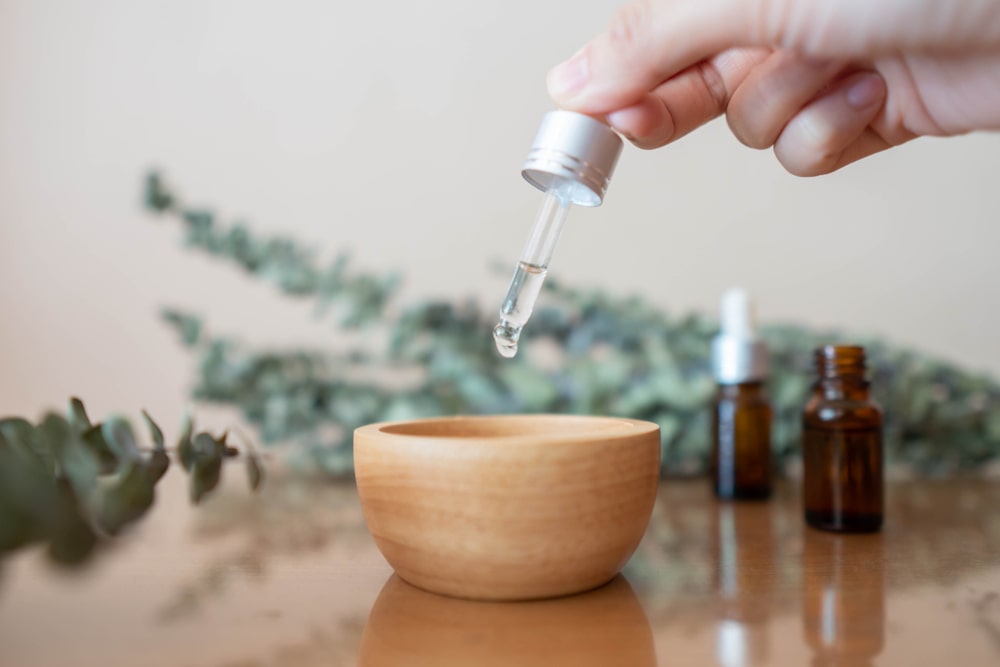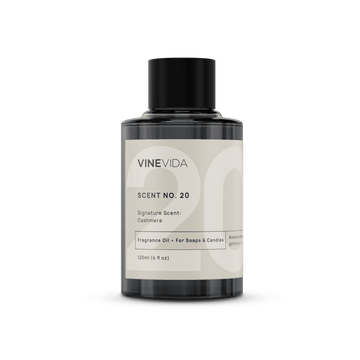What is eucalyptus oil good for? The answer is a myriad of things. First, eucalyptus contains 1,8-cineole, also known as eucalyptol. Second, Eucalyptol provides the oil with its well-known aroma and is frequently found in perfumes and cosmetics.
Historically, aromatherapists and traditional healers use eucalyptus oil to treat congestion and the common cough and aid people with other respiratory needs, such as asthma. Third, alpha-pinene, another component of eucalyptus oil, is known to provide anti-inflammatory properties. The properties make eucalyptus oil useful for people with arthritis, muscle stiffness, and injuries to joints.
And lastly, limonene can be found in medicines, cleaning, and hygiene products, increasing the use of eucalyptus oil.
Is Eucalyptus Oil Good for Colds and Congestion?
Thanks to its components, eucalyptus oil is probably most famous for its ability to relieve symptoms of colds and congestion. However, its reputation in medicine dates back to the 1700s, when indigenous Australians used both the leaves and roots for healing. When English colonists landed in Australia and discovered eucalyptus oil for themselves, they shipped quarts of the oil back to England for testing.
Eucalyptus oil is widely known for its anti-inflammatory, antimicrobial, and antifungal properties. It has been used to relieve joint and muscle pain and treat anti-fungal wounds. In addition, a study in 2008 showed that eucalyptus oil stimulates an immune response.
1,8-cineole also helps clear mucus and airways, acting as a natural cough suppressant and making eucalyptus oil a mainstay in cold medicines. In addition, many over-the-counter vapor or chest rubs marketed to suppress coughing contain eucalyptus oil. You can create your chest rub by adding a few drops of eucalyptus oil to a carrier oil and rubbing the mixture on the chest and throat.
Eucalyptus oil can also be diffused to assist with chest congestion. If you don’t have a diffuser, you can drop one to two drops in a bowl of hot water, place a towel over your head, and breathe deeply for five to ten minutes. Alternatively, add three to five drops to a warm bath and breathe in the vapors while relaxing.
A study in 2008 showed that eucalyptus oil stimulates an immune response, which may reduce your chances of catching a cold or flu during the winter months. Increasing white blood cells improves immunity, providing a faster recovery from infections. (Serafino, 2008)
What Is Eucalyptus Oil Good For In Mental Health?

Components in eucalyptus oil are also thought to stimulate the senses. This benefit can recharge and re-energize the body, increasing positive feelings. This stimulation can also decrease stress by calming the mind and body.
A 1994 study looked at the effects of both eucalyptus and peppermint oil. The double-blind study followed 32 participants in four different tests. The results showed increased cognitive function and mental relaxation while decreasing muscle tension. (H Göbel, 1994)
You can use this benefit by diffusing five drops of eucalyptus oil to refocus the mind or regularly spritzing eucalyptus oil into the air at work or home. You can make your spray by adding a few drops of the oil to witch hazel or vodka in a glass bottle. Shake the bottle before use to ensure the proper mixture.
What Is Eucalyptus Oil Good For In Skin Health?
Eucalyptus is a natural antiseptic and anti-inflammatory powerhouse. You can create a blend for minor cuts or wounds. Then, mixing the blend with a carrier oil, gently wipe down the affected areas twice a day.
Are you battling a sunburn? Add two to four drops of eucalyptus oil to two teaspoons of pure Aloe vera gel and two ounces of distilled water in a spray bottle. Shake well and spray for cool and refreshing relief.
You can also mix seven drops of eucalyptus oil with three tablespoons of pure Aloe vera gel to reduce oil production and decrease acne.
What Is Eucalyptus Oil Good For In Households?
Thanks to 1,8-cineole as its primary component, the list of ways to clean and disinfect with eucalyptus oil is extended. As an antimicrobial, it kills bacteria and mold, and mildew.
Many humans enjoy the aroma of eucalyptus. You can use eucalyptus throughout the home in reed diffusers, sachets, and oil warmers to create a natural bug-free environment. You can also spray the entrances and window casings of your home with ten to twenty drops of eucalyptus essential oil mixed with witch hazel or vodka in a glass spray bottle. Shake the bottle before each use.
Eucalyptus essential oil also contains components with anti-bacterial properties. This makes the oil great for cleaning naturally. For example, you can add a couple of drops to a cotton ball and place it in the bottom of trash cans or at the base of a toilet to help keep odors to a minimum. You can also create an eucalyptus floor wash with a teaspoon of the oil in a bucket of hot water.
An anti-bacterial spray for cleaning can also be created by mixing a ½ cup of white vinegar with one cup of hot water, twelve drops of liquid dish detergent, and six drops of eucalyptus oil in a spray bottle. Again, don’t forget to shake the bottle before each use. This same blend makes an excellent degreaser for stoves, sinks, and microwave ovens. Grease and grime on your hands, add some Epsom salts to eucalyptus oil and thoroughly scrub.
Thanks to cineole as its primary component, the list of ways to clean and disinfect with eucalyptus oil is extended. As an antimicrobial, it kills bacteria and mold, and mildew.
What Is Eucalyptus Oil Good For In Hair Health?
Eucalyptus oil contains a component that is known as anti-fungal. So why is it essential for hair health? It’s thought that yeast-like fungus is a likely reason for dandruff. So add eucalyptus oil to your shampoo to ward off dandruff.
You can add eucalyptus essential oil to a carrier oil and massage the blend into your scalp. Let it sit for twenty minutes, then rinse thoroughly. A good ratio is two to four drops of essential oil to one to two tablespoons of carrier oil.
Remember that not all carrier oils are created equally; some shouldn’t be used when adding essential oils to your hair. Although Olive oil is very nurturing, those with straight or fine hair may feel it weighs their hair down too much.
The best carrier oil for all hair types is Argan, made from the Moroccan Argan tree. Pumpkin seed oil is another contender and has the added benefit of promoting hair growth. Grapeseed oil is an excellent choice for people with fine hair as it is lightweight and absorbs quickly. Both Jojoba and Coconut oil can also be used.
One of eucalyptus oil’s main components, cineole, has also been shown to be effective in killing head lice, according to a 2017 study. Participants included children in Australia, as well as household members. A blend of eucalyptus and tea tree essential oils was used over two trials. All participants were screened before starting the first trial to ensure their hair contained live lice. Following a single blend application, 1418 head lice were collected and observed dead at the initial wet combing and thirty minutes after the combing. (Greive, 2017)
Possible Safety Concerns of Eucalyptus Essential Oil
1,8-cineole is excellent for coughs and colds, but it can be problematic when used on children because it slows respiration. It is best avoided for tiny ones under the age of six. If you decide to use it, only in very small dilutions of not more than 0.25%. Don't put it near their faces. Only apply to their backs.
Eucalyptus essential oil is highly potent and should always be used with caution. As with any oil, it’s vital to dilute properly. Always refer to recipes and dilution recommendations from your doctor or a reputable expert. You should also avoid ingesting the oil. The toxicity of the oil varies from person to person and can depend on their age.
As eucalyptus oil is derived from a plant, users may simply be allergic to the plant. Therefore, be mindful of rashes, irritations, or discomfort when using. It’s always wise to test a small area to ensure no issues occur.
What Is Eucalyptus Oil Good For In DIY Recipes
Eucalyptus Essential Oil Bath Salts
- 1 cup Epsom Salt
- ¼ cup coconut oil
- 5 drops Lavender essential oil (Lavandula angustifolia)
- 6 drops of Eucalyptus essential oil (Eucalyptus globulus)
Instructions to use
- Combine Epsom salt, coconut oil, Lavender essential oil, and Eucalyptus essential oil.
- Mix ingredients.
- Store in a container of choice.
Optional
Add dried lavender or eucalyptus botanicals. You can also switch out essential oils of your choice if you prefer to use something other than lavender or eucalyptus.
Safety
Not designed for topical use. Not safe for use in the first 16 weeks of pregnancy.
DIY Shower Steamers with Eucalyptus
Equipment
- Metal or Hard Plastic Molds: bath bomb/soap molds
Supplies
- 1 Spray bottle
- Pure witch hazel
- 1 cup citric acid
- 2 cups baking soda
- 20 drops of eucalyptus essential oil (Eucalyptus globulus)
Instructions to Use
To Make the DIY Shower Steamer:
- In a bowl, mix the citric acid and baking soda.
- Add the essential oil and mix that in well using your hands.
- Pour the witch hazel into the spray bottle and spritz some onto the top of the powder mixture.
- Mix the witch hazel in quickly with your hands, spritz some more on top, mix again, and repeat until the mixture packs together easily. Be careful not to get it too moist - if it starts to fizz, you've added too much.
- Scoop the mixture into the molds one at a time and pack it down tightly to hold together.
- Allow them to dry for at least 24 hours before use.
To Use the Shower Steamers:
- Pop one on the shower floor and run warm water as usual. This will cause the steamer to fizz and melt, releasing soothing eucalyptus into the steamy air. Inhale deeply!
Safety
They are not designed for topical use. Not safe for children or in the first 16 weeks of pregnancy.
What Is Eucalyptus Oil Good For In Conclusion
What is Eucalyptus oil suitable for? Research shows it is one of the most widely recognized and used essential oils, ranging from clearing mucus to degreasing your stove. However, its smell is powerful, and you should be careful when using it in any application. Always be sure to dilute eucalyptus essential oil, following dilution guidelines. Eucalyptus oil has also been involved in several studies providing various evidence to support its many uses.
References:
-
- Stimulatory effect of Eucalyptus essential oil on innate cell-mediated immune response
- Effect of peppermint and eucalyptus oil preparations on neurophysiological and experimental algesimetric headache parameters
- The efficacy of Australian essential oils for the treatment of head lice infestation in children: A randomised controlled trial
















